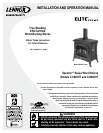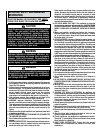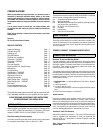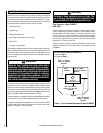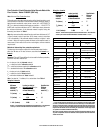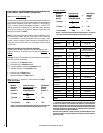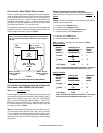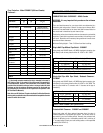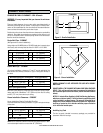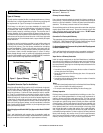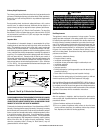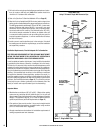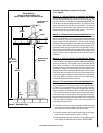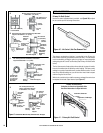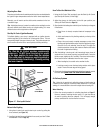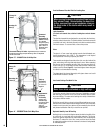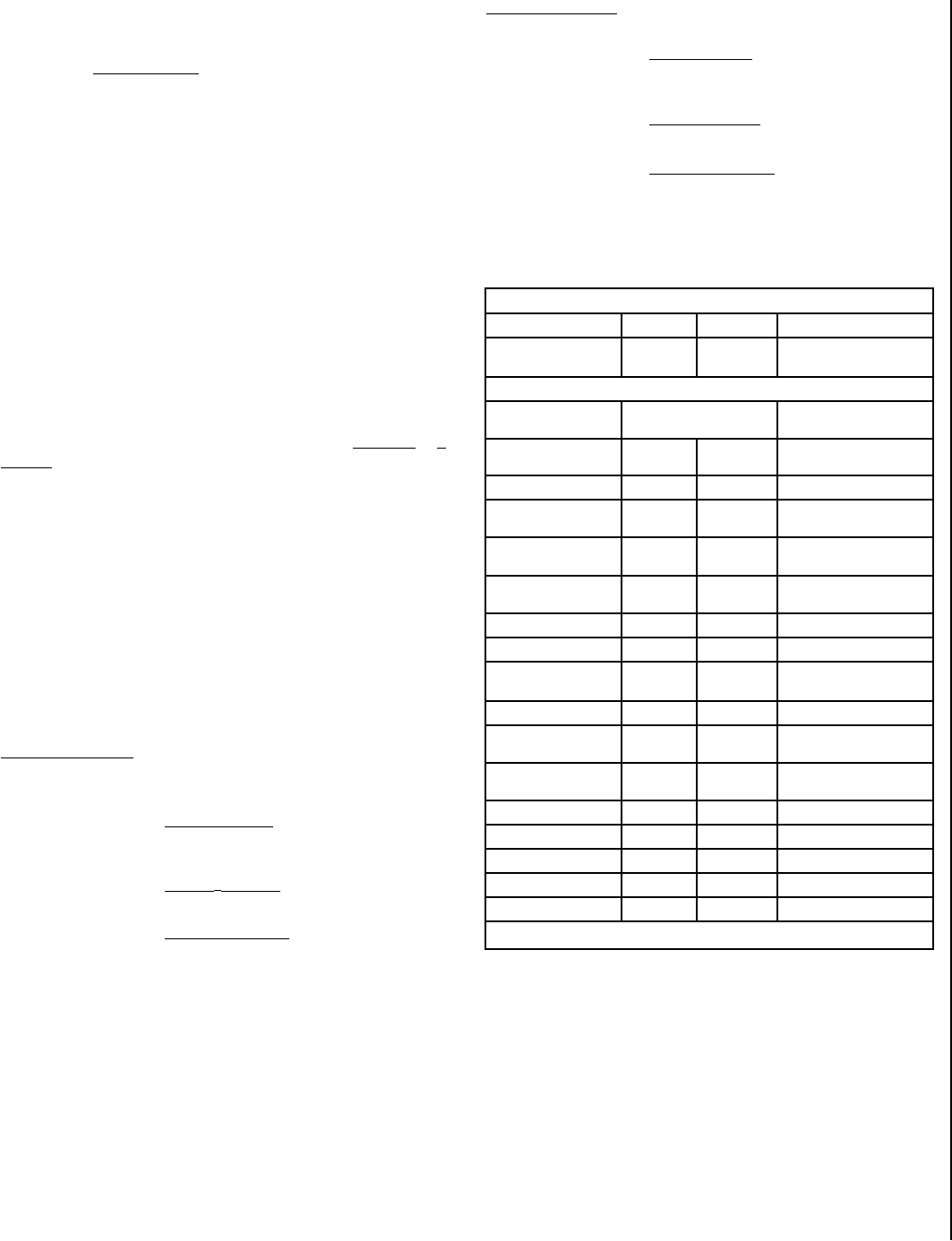
5
NOTE: DIAGRAMS & ILLUSTRATIONS ARE NOT TO SCALE
5
Floor Protection / Hearth Extension Using Alternate Material As
Floor Protector - Model CI1000HT (USA only)
Note: Also see Floor Protection above .
The hearth pad or alternate material used as a floor/hearth protector must
be constructed of a durable noncombustible material having an equal or
better thermal conductivity value (lower k value) of k =.84 BTU/IN FT2
HR °F or a thermal resistance that equals or exceeds r = 1.19 HR °F FT2
IN/BTU with a minimum thickness of 1/2”. With these values, determine
the minimum thickness of the alternate material required using the
formula(s) and shown in Table 1.
Note:
Any noncombustible material having a minimum thickness of 1/2”
(13 mm) whose k value is less than .84 or whose r value is more than
1.19 is acceptable. If the alternate material used has a higher k value
or lower r value will require a greater thickness of the material used. In
some cases, if the k value is less or the r value higher, a thinner material
may be used.
Methods of determining floor protection equivalents:
To determine the thickness required for the alternate material when
either the "k" value or "r" value is known, use either the k formula or r
formula.
Example: If Durock™ Cement Board is to be used for the floor protection,
how thick must this material be?
k
M
= k value per inch of alternate material
r
M
= r value per inch of alternate material
T
M
= minimum thickness required for alternate material
T
S
= standard thickness of the alternate material
k
L
= k value per inch of listed material
r
L
= r value per inch of listed material
T
L
= minimum thickness of listed material
Note: An asterisk "*" indicates, it is a value taken from Table 1.
Using the k formula:
Minimum k-value (per Inch) of Specified min.
thickness of =
alternate material (k
M
) x thickness
alternate k-value (per inch) of listed
material (T
M
) of listed material (k
L
) material (T
L
)
T
M
(inches) = kM x T
L
*.84
T
M
(inches) = *1.92 x .5"
*.84
1.143 (inches)= 2.286 x
.5"
Answer - The minimum required thickness of the Durock is 1.143" therefore
round up to nearest standard thickness available which is 1-1/4."
Minimum r-value (per Inch) Specified min.
thickness of =
of listed material x thickness
alternate r-value (per inch) of listed
material of alternate material material
T
M
(inches) =
r
L x T
L
r
M
T
M
(inches) = *1.19 x .5"
* .52
1.144 (inches)= 2.288 x
.5"
Answer - The minimum required thickness of the Durock is 1.143" therefore
round up to nearest standard thickness available which is 1-1/4."
Using the r formula:
Listed Material
k (per inch) r (per inch) Listed Min. Thickness
Listed Material .84
K
L
1.19
r
L
1/2" (.5")
T
L
** Approved Alternate Materials for Floor/Hearth Protection
Alternative Materials Thermal Values Minimum Thickness
(rounded to nearest 1/8 inch)
k (per inch)
K
M
r (per inch)
r
M
Min. Thickness
T
M
Kaowool M Board .47 2.13 .28" (1/4")
Micore 160™
U.S. Gypsum
.35 2.86 .21" (1/4")
Micore 300™
U.S. Gypsum
.46 2.17 .27" (1/4")
Durock™ Cement Board
U.S. Gypsum
1.92 .52 1.14" (1-1/8")
Hardibacker™ 1.95 .51 1.16" (1-1/8")
Hardibacker 500™ 2.30 .43 1.37" (1-3/8")
Cultured Stone Hearth-
stone™
2.82 .35 1.68" (1-5/8")
Wonderboard 3.23 .31 1.92" (1-7/8")
Super Firetemp M
Johns-Manville
.61 1.64 .36" (3/8")
Super Firetemp L
Johns-Manville
.54 1.85 .32" (3/8")
Face brick 9.00 .111 5.36" (5-3/8")
Common brick 5.00 .20 2.98" (3")
Cement mortar 5.00 .20 2.98" (3")
Ceramic tile 12.5 .08 7.44" (7-1/2")
Marble ~11 ~.09 6.55" (6-1/2")
Table 1
** If the hearth extension material(s) that is intended to be used is NOT listed
on Table 1, the material can still be used if the material(s) is noncombustible.
However, the manufacturer of the material must provide either the listed k-value
per inch or r-value per inch with listed thickness so that the minimum thickness
required for the hearth can be calculated (per instructions on this Page and/or
as specified in the NFI Certification Manuals).
Note: Also see NFI (National Fireplace Institute) Certification Manuals show
-
ing other acceptable calculation methods and acceptable alternate materials
which can be used.



